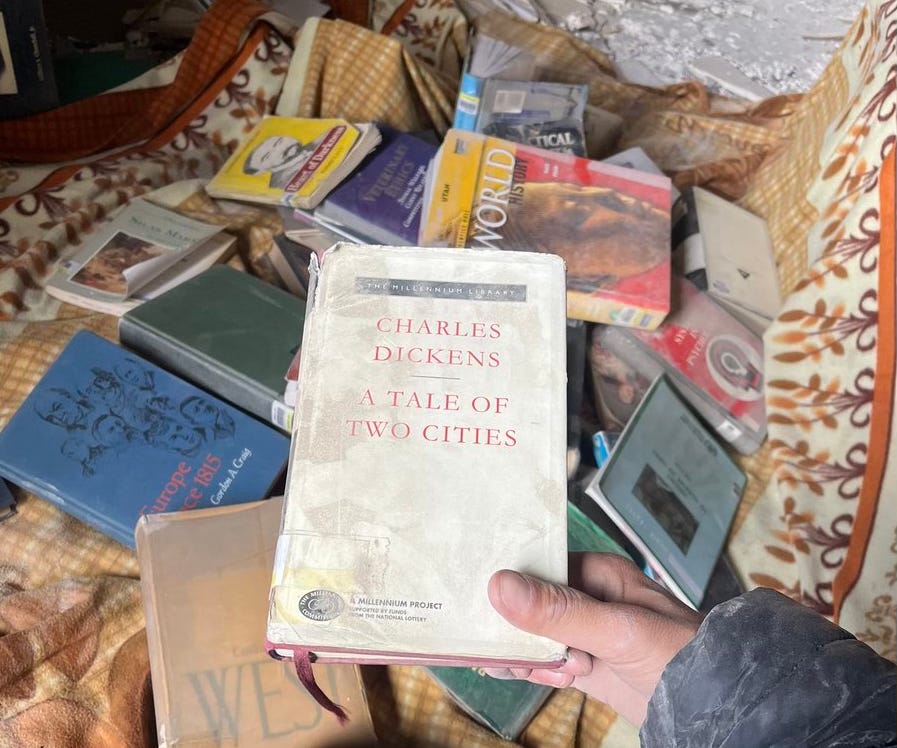Notebook: (2) Dismantling the Ideas Infrastructure
As the institutions bend, the defense of intellectual integrity is left to the powerless
Books salvaged by Omar Hamad from a destroyed library in the Gaza Strip. He is a fan of The Master and Margarita
Read Part One of this post here!
Among other things, the Trump administration required that Columbia University’s Middle East, South Asian, and African Studies Department be placed “under academic receivership for a minimum of five years.” “The University must provide a full plan” for this “receivership,” “with date certain deliverables, by the March 20, 2025 deadline.” “Academic receivership” is a rare measure usually taken by a college or university when a department has fallen into dispute and become unable to make decisions. It usually involves a renewable year-to-year appointment of a scholar from another department—not an administrator—as chair until the department is able to reestablish its own governance. Columbia complied with the administration’s demand in all but name, appointing a “senior vice provost” with the responsibility to “conduct a thorough review of the portfolio of programs in regional areas across the University, starting immediately with the Middle East” and of “the process for hiring non-tenured faculty” and to “make recommendations to the President and Provost about any necessary changes, academic restructuring, or investments that will ensure academic excellence and complementarity across all programs in the given academic areas,” “to ensure the educational offerings are comprehensive and balanced.” One administrator quipped, “in some countries this position is known as a Political Officer.”
The decision to appoint an administrator in this role is significant. I wrote here last spring about how Florida’s pioneering effort to exert state control over higher education had undermined a long-in-the-building tradition of “shared governance” between university faculty and administration. The American Association of University Professors’ 1966 Statement on Government of Colleges and Universities declares that “the faculty has primary responsibility for such fundamental areas as curriculum, subject matter and methods of instruction, research, faculty status, and those aspects of student life which relate to the educational process.” Moving such decision-making to a university’s administration, more readily subject to intrusion and intimidation by government or donors, is a major step toward undermining academic freedom.
Keep reading with a 7-day free trial
Subscribe to Book Post to keep reading this post and get 7 days of free access to the full post archives.


